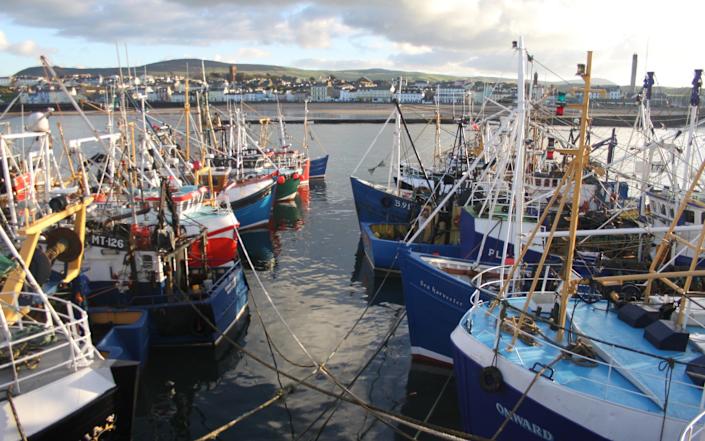
The Isle of Man’s historic herring industry is being revived after a quarter of a century thanks to a post-Brexit agreement with the UK on fishing quotas.
Fishermen on the island will be able to land four times as many herring as before and will also be allowed to catch 235 tonnes of langoustines, worth a total of over £2m a year to the island’s economy .
The Manx fishing industry was brought to its knees by the European Union’s Common Fisheries Policy, which imposed strict catch size limits in the 1980s.
Fishermen on the island were reduced to making a living by catching scallops. At the start of the millennium, the herring quota was too small to be commercially viable.
But after the UK regained control of its waters by leaving the EU, the government granted the Isle of Man a quota of 100 tonnes of oily fish.
“A once-in-a-generation opportunity”
The herring industry dates back to at least the 13th century on the island. At its height in the early 19th century, it had a fleet of 350 fishing vessels.
Dried herrings were exported to Britain, Ireland, Italy and the Mediterranean. In the 1820s Scottish and Cornish fishermen set sail for Manx waters to share the bounty.
During the evacuation of Dunkirk in 1940, one out of 15 soldiers was evacuated on a boat registered in the Isle of Man.
Under the terms of the UK’s Brexit deal with the EU, the UK is gradually regaining control of its territorial waters. Therese Coffey, the environment secretary, has been in negotiations for two years with the government of the Isle of Man – a self-governing Crown dependency – and the Manx Fish Producers Organization.
Clare Barber, Manx’s environment minister, said the new quotas are a “unique opportunity” to revive the island’s herring industry, which will be managed sustainably under the agreed quota system.
Herring numbers in the Irish Sea have doubled since the 1990s and the herring fishing season will only run from July to October.
Herring, known as skeddan in the Manx language, was once so important to the island’s diet and food security that Manx folklore recounts how the skeddan became king of the sea – something that is still celebrated in Manx folk music.
Broaden your horizons with award-winning British journalism. Try The Telegraph free for 1 month, then get a year for just $9 with our exclusive US offer.

